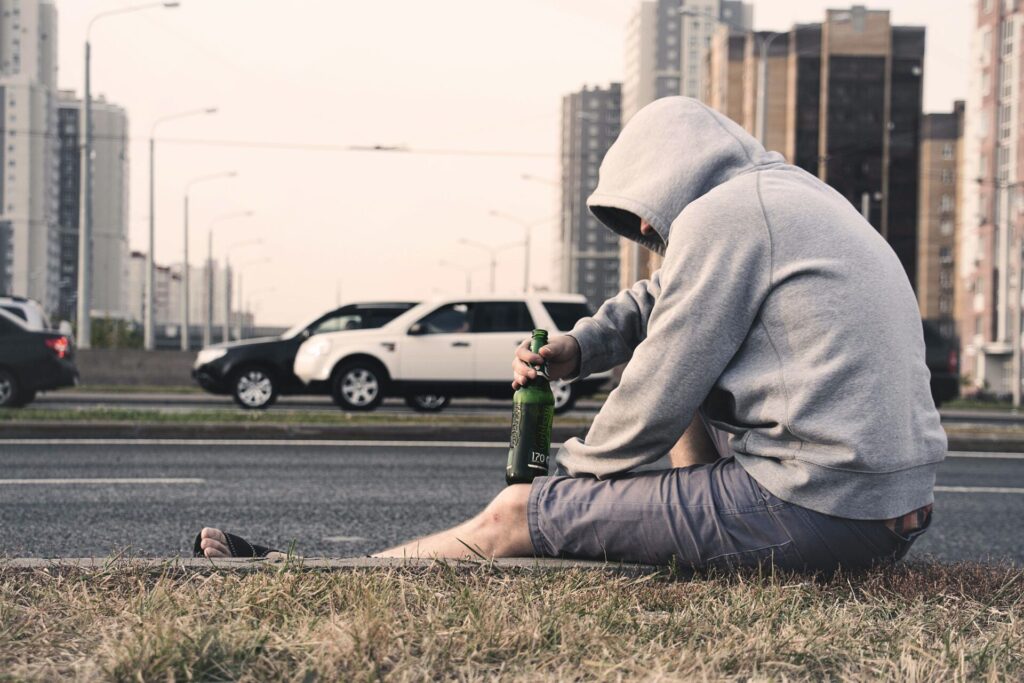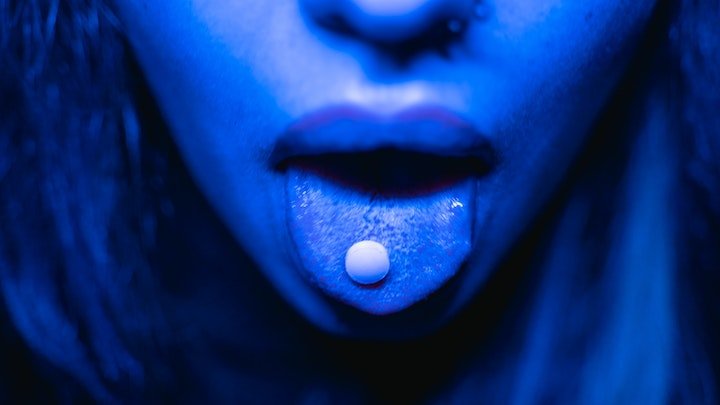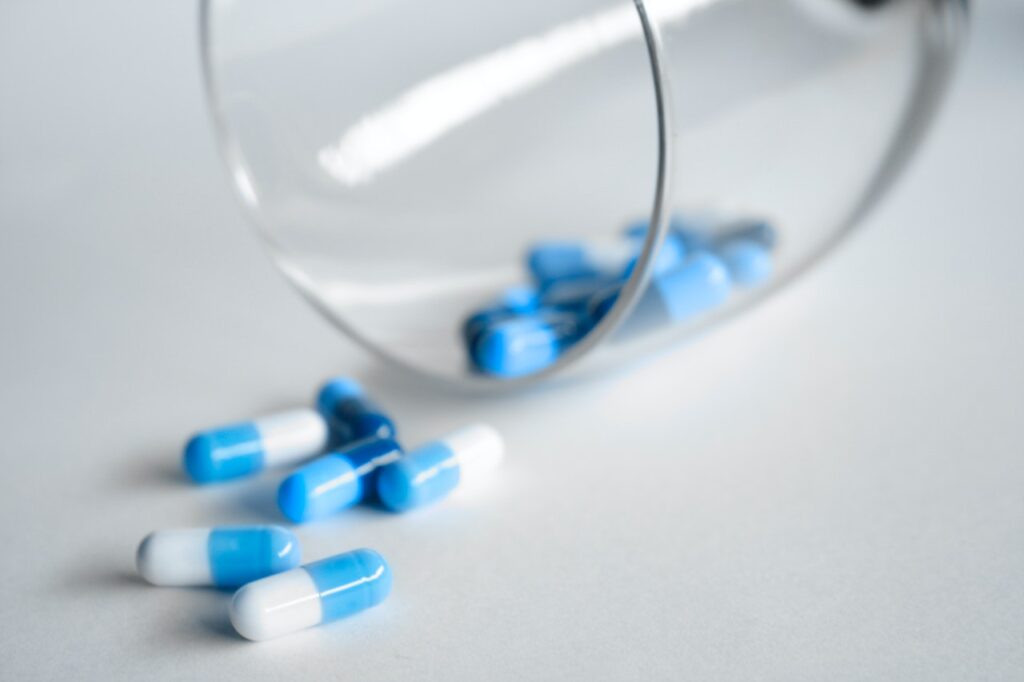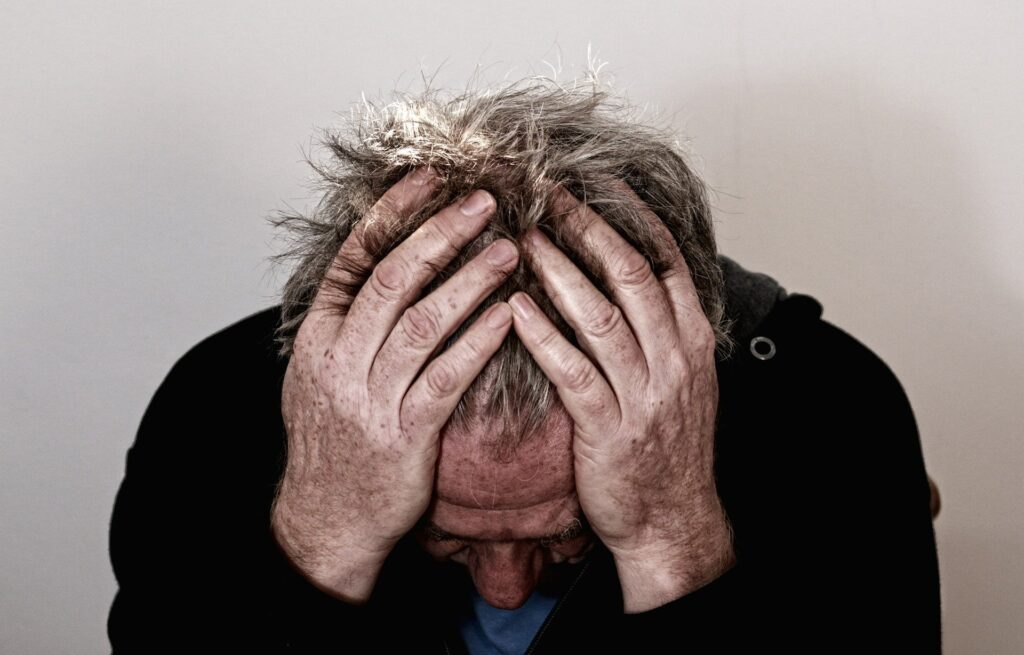Drug and Alcohol Rehab in Strathclyde
Drug and alcohol addiction has a profound effect on members of the community in Scotland and areas of Strathclyde.
- In 2020, there were 1,339 drug-related deaths in Scotland, and this was the largest number ever recorded.
- In the following year, Scotland saw 1,330 deaths due to drug use, only 9 fewer deaths than the highest recording year. This made 2021 the second-highest year for drug-related deaths in Scotland.
Furthermore, studies conducted by the Scottish government estimate that the average adult in Scotland buys enough alcohol to consume 19 units per week, which is the equivalent of 40 bottles of vodka or 100 bottles of wine per year.
This means that they are consuming far more alcohol than the UK guideline.

- The same study then estimated that there are around 55,000 to 58,000 frequent drug users at any time in Scotland.
- In areas of the region of Strathclyde, such as Glasgow, for example, around 20% of the population live in income-deprived areas and around 21% suffer from mental health conditions.
- These factors place them at significant risk of developing a drug or alcohol addiction and suffering from severe symptoms. It is estimated that around 50% of hospital admissions due to drug or alcohol misuse come from economically deprived areas.
Furthermore, around 20% of people in Glasgow and other areas of Strathclyde are already suffering from a form of alcohol dependence. In addition to hospital admissions and deaths due to drug misuse in Strathclyde and other areas of Scotland, there are an estimated 700 hospital admissions per week due to excessive drinking.
What is Addiction?

Drug and alcohol addiction, also known as substance use disorder, substance addiction, substance misuse, and so on, is officially classified as a brain disease of chronic relapsing.
When someone is suffering from a drug or alcohol addiction, they are not simply deciding to consume the substance, they are physiologically dependent on the substance to function.
If someone is suffering from substance addiction, it means that the neural pathways in their brain have been restructured in a way which makes them dependent on intoxicating substances to experience a dopamine release and feel optimal.
According to the brain disease model of addiction, the reward pathways of an addicted person have been altered in a way which makes them unable to experience this dopamine release naturally as they did previously.
Since they are unable to replicate these feelings of pleasure or happiness with other activities, subjects will keep consuming these intoxicating substances.
The more they consume these substances, the more reinforced their tolerance to the drug will be, which means they will need to consume higher amounts, and this places them at an increased risk of suffering from an overdose.
Symptoms of Addiction
The many symptoms of addiction can be divided into different categories such as physical and psychological problems, social problems, trying to quit but being unable to, and so on.
The physical and psychological problems associated with addiction can be exemplified by the withdrawal symptoms that people experience when they suddenly abstain from alcohol.
These withdrawal symptoms can be mild or severe, and they can even have the capacity to kill the subject if they are extremely dependent on the substance.
- Psychological withdrawal symptoms include insomnia, anxiety, depression, irritability, erratic behaviour, and so on.
- Physical withdrawal symptoms, on the other hand, include but are not limited to headaches, diarrhoea, vomiting, lethargy, fatigue, trembling, and even strokes or seizures.
Often, patients who are suffering from moderate to severe physical withdrawal symptoms are required to undergo a medicated detox at their drug and alcohol rehab in Strathclyde.
Drugs and alcoholic substances are also considered to be carcinogenic, which means that they can cause cancer. In the long term, subjects who are unable to overcome their addiction may suffer from cancers in the throat, lungs, breast, rectum, or others. Additionally, many subjects end up succumbing to diseases such as liver disease.
Liver disease is the leading cause of death in adults aged between 35 – 49 years old in the United Kingdom. Furthermore, 90% of liver disease cases in the United Kingdom are due to alcohol.
However, the effects of drug and alcohol addiction go way beyond its health complications. People who are suffering from addiction often experience social problems, whether they suffer from relationship breakdown, poor occupational performance, committing a crime, and so on.
In some areas of the United Kingdom, it is estimated that around 30% to 50% of crimes such as assault, burglary, sexual assault, and so on are committed by people who are either addicted to drugs and alcohol or under the influence of substances.
Admissions Process and Entering a Drug and Alcohol Rehab in Strathclyde

To begin your recovery journey, Rehab Recovery can help you enter a drug and alcohol rehab in Strathclyde or your local area.
By dialling the number 0800 088 66 86 from the United Kingdom or +44 330 333 6197 internationally, we can help you initiate your transition into recovery, and make it as seamless and easy as it should be.
When you dial the number, a friendly and experienced admissions officer will be ready to pick up the phone. This person will be at your disposal to answer any of your questions or concerns, and only once you are ready will they ask you to complete a health assessment, also known as the pre-admission assessment.
While it may sound very formal and intense, it is simple, completed over the phone and free of charge. This assessment will simply consist of asking and answering a few questions about your current health and addiction status, medical history, any cognitive or biomedical complications, and so on.
This information will not be shared with anyone other than the addiction specialists and health practitioners who are responsible for tailoring your addiction treatment and identifying a suitable drug and alcohol rehab in Strathclyde which can facilitate your recovery.
Treatment at a Drug and Alcohol Rehab in Strathclyde

Addiction is a multifaceted condition, there are many variables when it comes to the type of substances used, the severity of symptoms, the causes of addiction, and so on.
While one person may suffer from hereditary and genetic predispositions which expose them to addiction, another may suffer from mental health conditions such as depression. One patient may suffer from mild psychological symptoms, another suffers from severe physical symptoms.
No two cases of addiction are the same. And because of this, we must carefully consider the types of treatment which are involved at a drug and alcohol rehab in Strathclyde.
There needs to be a range of therapy and counselling sessions available for different patients to fully optimise their recovery and maximise their responsiveness to therapeutic approaches.
Patients will be able to enter a public rehab as an outpatient, or a residential rehab as an inpatient at Strathclyde.
Typically, patients who are suffering from mild forms of addiction are more suited to outpatient treatment, where they will undergo around 4 – 6 hours of counselling and therapy per week while returning home and maintaining other responsibilities (e.g. academia or employment).
Inpatient treatment is more suited for patients suffering from more severe forms of addiction and may suffer from mental health issues in addition to addiction.
At a residential drug and alcohol rehab in Strathclyde, patients will undergo a personalised and comprehensive addiction treatment programme for around 28 days.
They will undergo therapy, counselling, relapse prevention planning, and potentially a medicated detox and Medicated Assisted Therapy (MAT) if they are suffering from intense withdrawal symptoms.

Some of the most popular forms of treatment used at rehab are:
- Cognitive Behavioural Therapy (CBT): CBT is one of the most popular forms of treatment for not only addiction but a range of mental health issues such as anxiety, bipolar disorder, schizophrenia, depression, and more. The purpose is to help patients understand which cognitive and behavioural traits and habits they exhibit are actually affecting them and intensifying their addiction, and also how they can replace these habits to craft a healthier and more sustainable lifestyle.
- Dialectical Behavioural Therapy (DBT): DBT is another highly popular form of therapy, and it is a branch of CBT. What makes this form of therapy different is that it caters more towards patients who are suffering intensely from emotional problems. Typically, these patients have PTSD, anxiety, bipolar disorder, and so on. Patients will learn about the intricacies of stress management, meditation, and managing their emotions rationally.
- Holistic Therapy: This is a unique form of therapy because it does not rely on communication to bring results for patients. Instead, it incorporates a wide range of activities such as tai chi, yoga, adventure therapy, art therapy, equine therapy, massages, and so on to bring forth physical and spiritual as well as mental benefits. It may not directly address addiction issues, but it can help improve the general well-being of patients to make them more capable of recovering successfully at their rehab facility.
- Family Therapy: It is important to include the family to optimise patients’ treatment for alcohol and drug addictions. This can help reinforce the patient’s close support network because it educates family members on the complexities of addiction recovery and offers them family counselling, which can make them much more capable and in a better state of mind to approach their loved ones one’s addiction.
- Group Therapy: Group therapy is another important aspect of recovery because it provides patients with a platform to share their experience with addiction and recovery, whether positive or negative. This allows patients to resonate with each other and gain insight into each other’s experiences. Group therapy is effective in combating social isolation and facilitating emotional purging.
- Acceptance and Commitment Therapy (ACT): While acceptance and change are polarising ideas, ACT can help patients accept their flaws to be able to commit towards their recovery programme. ACT helps patients manage their thoughts and feelings towards becoming more rational and objective about addiction recovery.
Aftercare in Strathclyde

Although patients will gain invaluable knowledge and skills from therapy at a drug and alcohol rehab in Strathclyde, recovery is not achieved miraculously.
Rather, patients who overcome the symptoms of addiction and its cravings must continually practise their newfound lifestyle of health and sobriety.
Recovery is a long-term plan which must be maintained for life.
When a patient leaves their drug and alcohol rehab in Strathclyde, they will continue to be supported in the form of an aftercare programme.
This aftercare programme will grant patients access to support sessions and fellowship groups such as Alcoholics Anonymous, Narcotics Anonymous, SMART Recovery, and so on. Furthermore, they will also receive help through the form of a 12-Step Programme to sustain their sobriety throughout post-rehab life.
References
[1] Drug Related Deaths in Scotland in 2020, Report https://www.nrscotland.gov.uk/files/statistics/drug-related-deaths/20/drug-related-deaths-20-pub.pdf
[2] Drug Related Deaths in Scotland in 2021, Report https://www.nrscotland.gov.uk/files/statistics/drug-related-deaths/21/drug-related-deaths-21-report.pdf
[3] Alcohol and Drugs – Gov.Scot https://www.gov.scot/policies/alcohol-and-drugs/
[4] Glasgow City Alcohol and Drug Strategy 2020 – 2023 https://www.glasgow.gov.uk/CHttpHandler.ashx?id=50921&p=0
[5] The Brain Disease Model of Addiction https://www.hazeldenbettyford.org/research-studies/addiction-research/brain-disease-model
[6] Statistics – British Liver Trust https://britishlivertrust.org.uk/about-us/media-centre/statistics/
[7] Cognitive Behavioural Therapy in Addiction Treatment – Rehab Recovery https://www.rehab-recovery.co.uk/addiction-treatments/cognitive-behavioural-therapy/
[8] Dual Diagnosis: Anxiety – Rehab Recovery https://www.rehab-recovery.co.uk/addiction-treatments/dual-diagnosis/anxiety/
[9] Dual Diagnosis: Alcohol and Schizophrenia – Rehab Recovery https://www.rehab-recovery.co.uk/addiction-treatments/dual-diagnosis/alcohol-schizophrenia/
[10] Dual Diagnosis: Depression – Rehab Recovery https://www.rehab-recovery.co.uk/addiction-treatments/dual-diagnosis/depression/
[11] DBT for Addiction Treatment – Rehab Recovery https://www.rehab-recovery.co.uk/addiction-treatments/dbt/
[12] Dual Diagnosis: PTSD – Rehab Recovery https://www.rehab-recovery.co.uk/addiction-treatments/dual-diagnosis/ptsd/
[13] Bipolar Disorder and Addiction – Rehab Recovery https://www.rehab-recovery.co.uk/addiction-treatments/dual-diagnosis/bipolar-disorder-addiction/
[14] Alternative & Holistic Therapy for Addiction – Rehab Recovery https://www.rehab-recovery.co.uk/addiction-treatments/alternative-holistic/
[15] ACT for Addiction Treatment – Rehab Recovery https://www.rehab-recovery.co.uk/addiction-treatments/act/
[16] Alcoholics Anonymous – Rehab Recovery https://www.rehab-recovery.co.uk/addiction-treatments/alcoholics-anonymous/
[17] What is Narcotics Anonymous? – Rehab Recovery https://www.rehab-recovery.co.uk/addiction-treatments/narcotics-anonymous/
[18] SMART Recovery: What Is It and How Can It Help? https://www.rehab-recovery.co.uk/addiction-treatments/smart-recovery-what-it-is-and-how-it-can-help/



